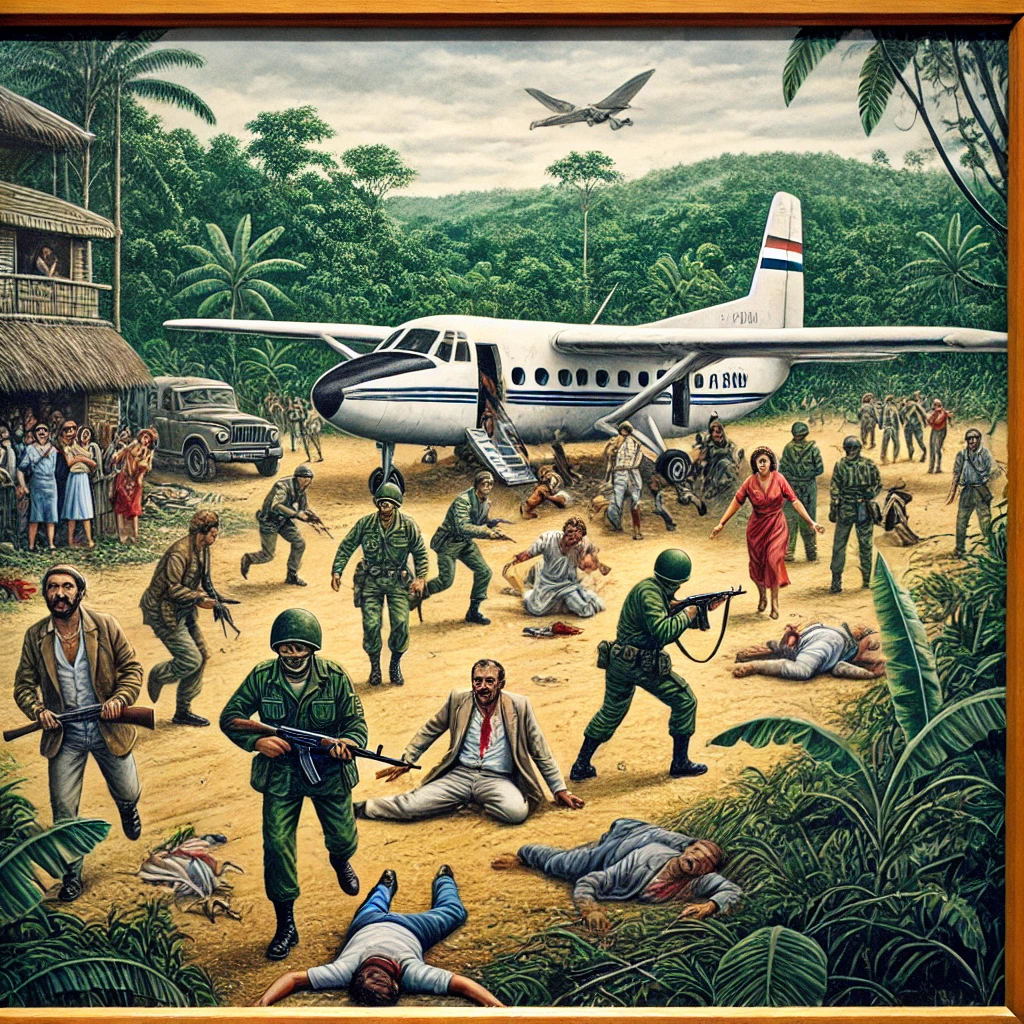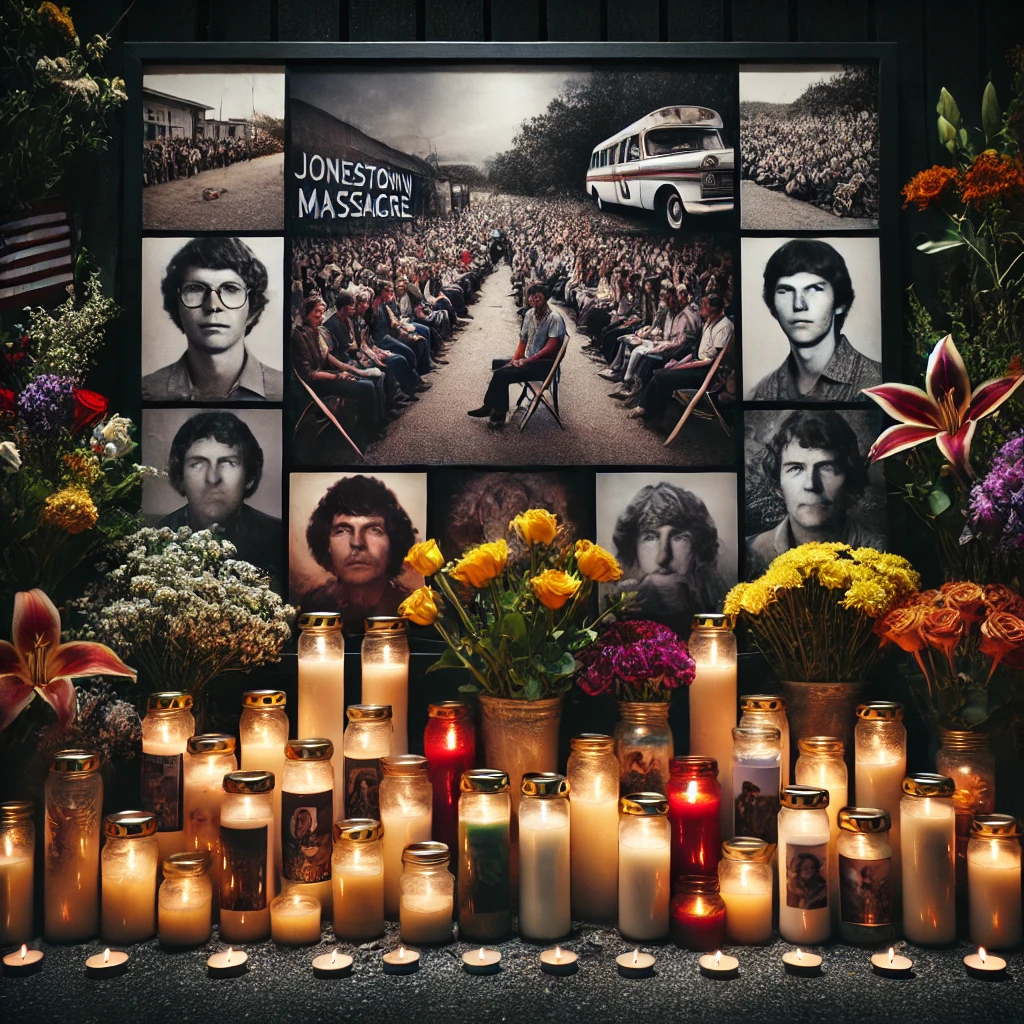On November 18th, 1978, the world witnessed one of the most devastating tragedies of the 20th century—the Jonestown Massacre. In the remote jungles of Guyana, over 900 members of the People’s Temple, a religious cult led by Jim Jones, died in a mass murder-suicide that shocked the nation and raised profound questions about the nature of cults and the human psyche. This tragic event remains etched in history as a stark reminder of the dangers of fanaticism and blind loyalty.

The Rise of the People’s Temple
The People’s Temple, founded in the 1950s by Jim Jones, initially presented itself as a progressive and inclusive community advocating for social justice and racial equality. Jones, a charismatic leader, attracted followers through his passionate rhetoric and promises of a utopian society. However, as the organization grew, it became increasingly authoritarian, with Jones exerting tight control over his followers’ lives. The temple’s members were isolated from the outside world and subjected to intense psychological manipulation.
In the 1970s, as scrutiny of the People’s Temple increased, Jones moved his congregation to Guyana, where he established a commune known as Jonestown. Here, the group attempted to create an idyllic society away from what they perceived as a corrupt world. However, the reality was far from the idealized vision that Jones had sold to his followers. Life in Jonestown was marked by harsh conditions, fear, and increasing paranoia about external threats, as Jones cultivated an atmosphere of loyalty and devotion among his members.
The Tragic Events of November 18th

The events that transpired on November 18th unfolded after a congressional delegation, led by Congressman Leo Ryan, visited Jonestown to investigate reports of human rights abuses. Although the visit began positively, it quickly turned tense as several members expressed their desire to leave with Ryan. Tragically, as the group attempted to leave, they were ambushed by armed members of the People’s Temple at a nearby airstrip, resulting in the deaths of Ryan and four others.
In the wake of this violence, Jim Jones initiated a horrific plan. He instructed his followers to participate in a mass suicide by consuming a poison-laced drink. Under intense psychological pressure and the belief that they were part of a collective cause, over 900 people, including children, complied with Jones’s orders. The heartbreaking scene that unfolded in Jonestown was one of desperation and despair, leaving a profound impact on those who would later learn of the tragedy.
The Aftermath and Lasting Impact

The Jonestown Massacre sent shockwaves around the world, prompting an immediate investigation into the events that had taken place. It revealed the dark side of cults and the lengths to which charismatic leaders can manipulate vulnerable individuals. The incident raised awareness about the psychological mechanisms of control, coercion, and the dangers of absolute authority.
In the years following the tragedy, discussions about cults and their impact on society intensified. Scholars and mental health professionals began to study the psychological dynamics that allow such groups to flourish, and the need for support systems for those escaping abusive environments became increasingly recognized. The Jonestown Massacre serves as a cautionary tale, highlighting the importance of critical thinking and the need for vigilance against manipulation and abuse.
The Jonestown Massacre on November 18th, 1978, remains one of the darkest events in modern history, representing the tragic consequences of blind loyalty and the manipulation of vulnerable individuals. As we reflect on this harrowing chapter, we are reminded of the importance of safeguarding personal autonomy and promoting awareness of the psychological tactics employed by cults and authoritarian groups. The legacy of Jonestown serves as a reminder of the need for compassion and support for those who have experienced the devastating effects of such tragedies, and it emphasizes the ongoing relevance of understanding human behavior in the context of leadership and influence.
